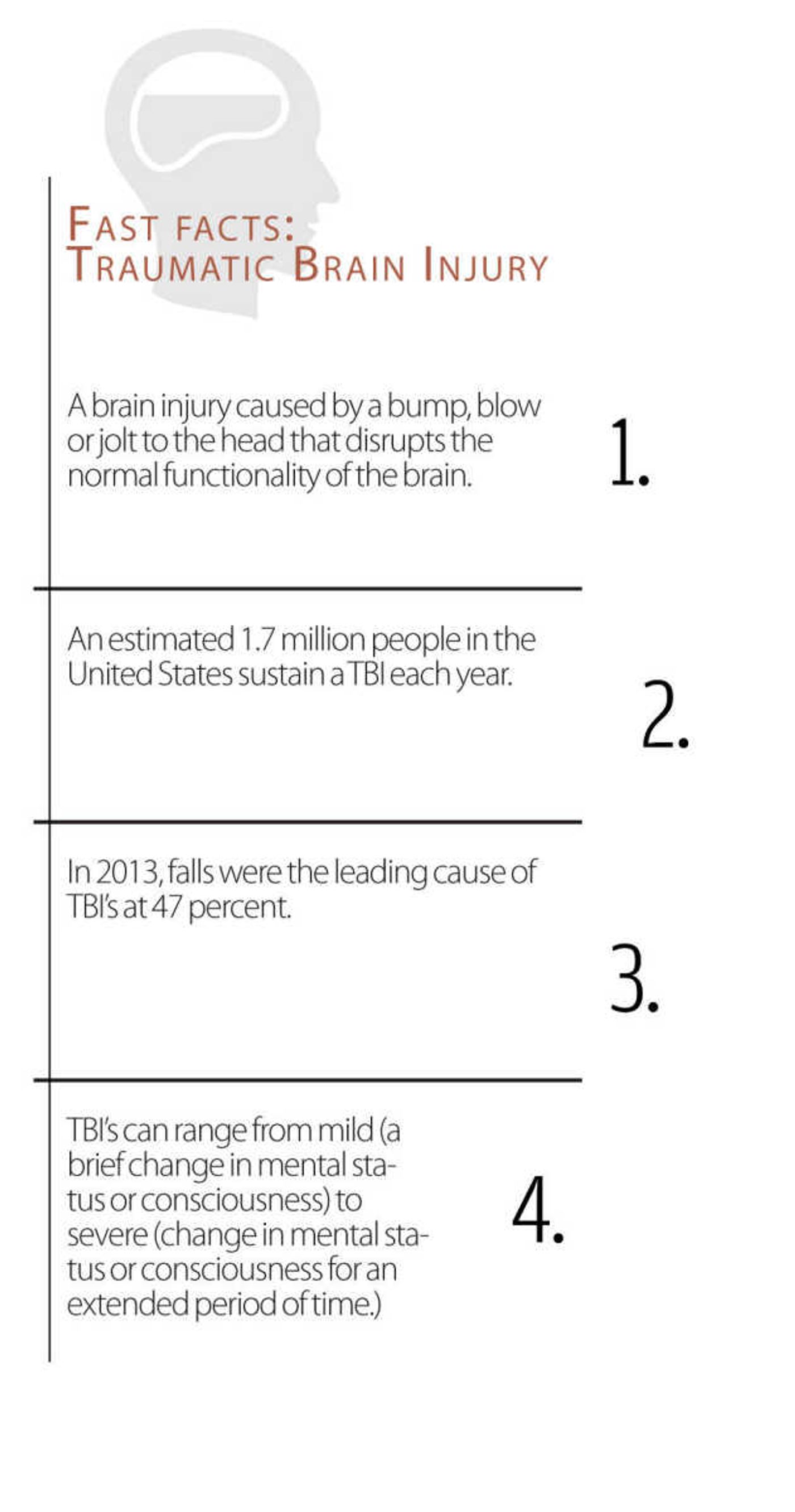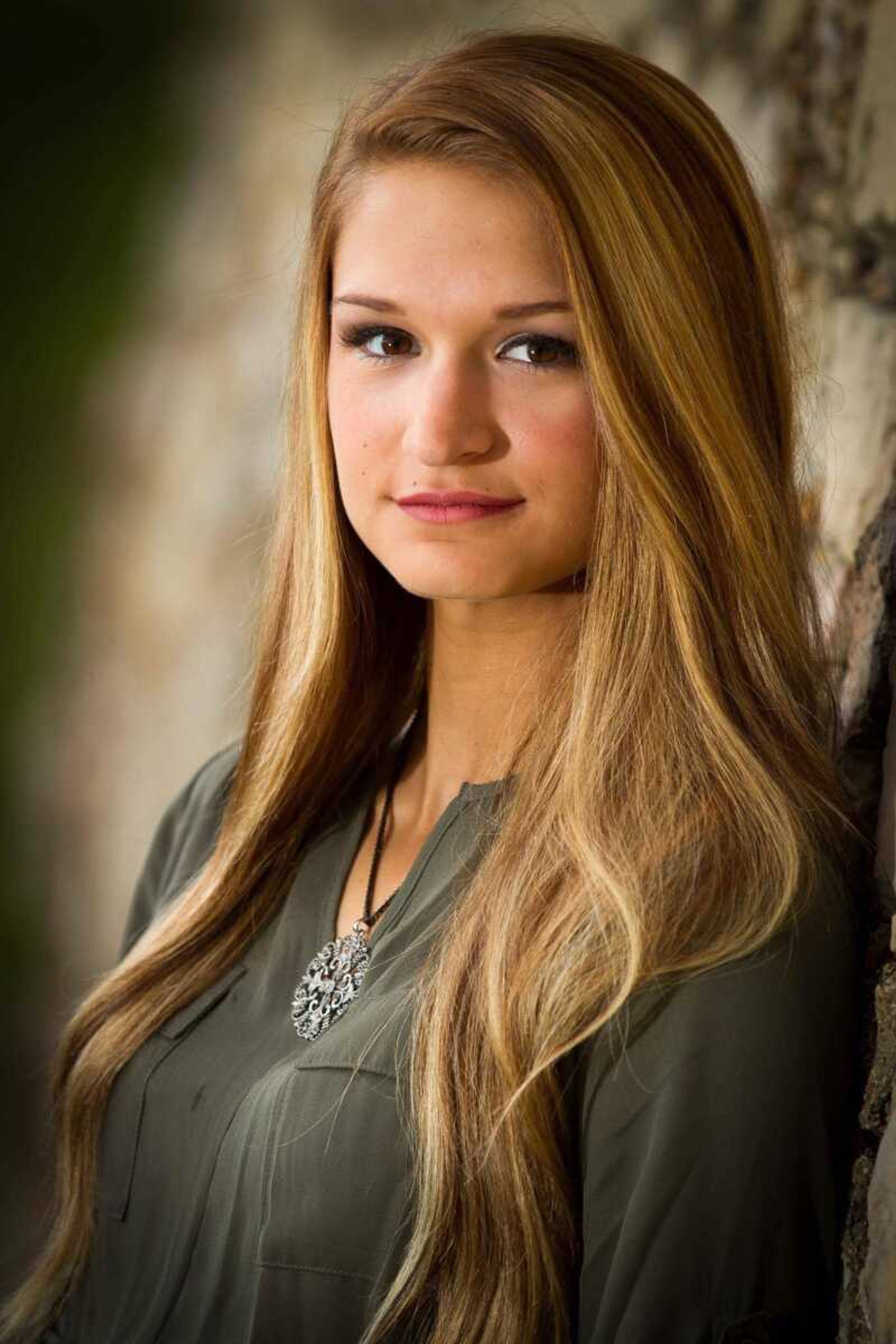Kirsten Strebe remembers the exact moment when her life changed forever.
At 4:55 p.m. on Oct. 25, 2016, Strebe was in a car accident that should have killed her. Her car flipped several times before wrapping around a tree, and her skull collided with her brother’s. He was the only other person in the vehicle at the time.
Now, the pair live with injuries and disabilities that have changed the way they live everyday life.
“There’s nothing that was not affected by this accident,” Strebe said.
Right after the accident, Strebe said she couldn’t remember anything for more than five minutes. That short-term memory loss is part of her amnesia and is something she still lives with today. Strebe also lives with a speech disorder, which she said has improved since the accident.
She sustained a traumatic brain injury (TBI) from where she struck heads with her brother. Because the two sat side by side during the accident, the siblings have brain injuries on opposite sides of their brains.

“We were complete opposites,” Strebe said. “I was wheelchair-bound and my brother was jump-roping. And then I was doing calculus homework and he couldn’t read.”
Since her TBI is on the right side of her brain, Strebe said she experiences right-sided weakness from head to toe. She’s right-handed and said writing has been a challenge.
The physical side effects from her disability caused Strebe to use a wheelchair and then a cane for some time after the accident. She used the cane while learning how to walk again.
Strebe said she takes advantage of all the railings on campus, especially while walking up or down slopes or stairs. She added that she didn’t really notice things like handicap-accessible features before her accident.
Now, when she thinks about the days of being wheelchair-bound, Strebe said she imagines what it would be like trying to get around on campus.
“I think it would be very hard for me to get around, but I feel like when people don’t need it, they don’t recognize that,” Strebe said.
Although she’s encountered challenges from her disability, Strebe said Counseling and Disability Services on campus has been phenomenal in assisting her in the learning environment.
Extended testing time through Testing Services is one of the accommodations she uses and it gives her the “extra cushion” she said she needs to not be so stressed out while taking exams.
“I was really worried coming into it anyway, about college prior to my accident,” Strebe said. “College kind of gave me anxiety.”
Strebe said some of that fear was rooted in the fact that she might not be able to make friends at school like she knew she could before the accident.
“I have thought, ‘Is anyone going to accept me for the way that I am?’ or ‘Am I going to scare off my roommate?’” Strebe said.
Her fears have since been calmed by the students who Strebe said have been “very accepting” of her situation and have helped her whenever possible.
A willingness to accommodate others who need help is something Strebe said is important for those without disabilities to understand.
Before her accident, she said she felt like she was ignorant when it came to disabilities, and never even talked to many of the kids in her school who had disabilities. Now, she sees things in a different light.
“Just be open to learning about it and become more involved with people who have disabilities,” Strebe said.
A little more than a year ago, Strebe’s life was changed in ways she can never undo. But for her, that change has given her more than she ever could have imagined.
One of the best things that came from the accident, Strebe said, is her newfound passion for her career in occupational therapy.
“I’d never really been excited for my college major ... but [working in occupational therapy] makes me so happy and that gives me motivation to push through all the hard times I might have right now because I know that it’s going toward something good,” Strebe said.
Strebe said she’s making her own happy ending.
“I’ve learned to just take what I’ve been given and try to apply it to something a lot greater than what I am and try to make something good out of a horrible thing that happened.”
For more information about Counseling and Disability Services, students should call (573) 986-6191.






